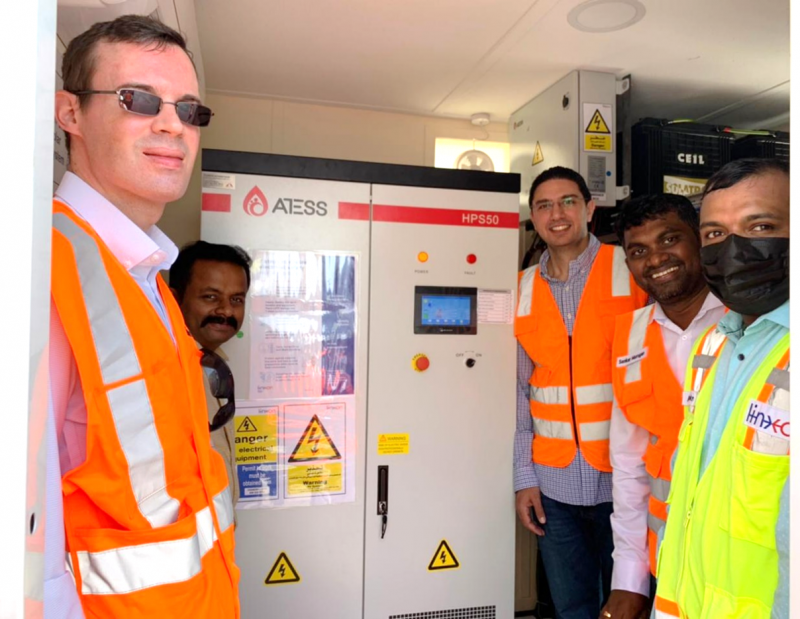Project highlights
At Linxon, we aim to halve CO2 emissions by 2030 and reach net-zero by 2050. Alongside our decarbonization efforts, we also focus on material reduction and recycling. And this is pursued at the local level – like these teams in the United Arab Emirates.
Did you know? On average, a DGrade t-shirt made from 100% plastic bottles contains 10-12 bottles!
Just before COP26, held in Glasgow in 2021, the UAE announced its aim to go net zero by 2050. It’s a target which aligns it with many major economies as well as the timeframe that gives the world some chance of avoiding the worst effects of global warming, according to scientists.
Every step counts in trying to meet this aim. At Linxon, we believe in and live our values. This is why our Middle East team has come up with various initiatives within our UAE operations to walk the talk on building a sustainable future – and which contribute to overall climate targets.
Renewable energy initiative
One example is an off-grid solar-diesel hybrid system implemented at the 132/11kV ABRAJST substation in Dubai in November 2021. This initiative involves solar panels, a battery bank, a diesel generator and an energy management system to provide the site office area with enough energy for its operations. The 60kVA diesel generator is only used as a backup plan. It is able to fully power the site in the event of an emergency in such a way that both types of energy complement each other.
This initiative is the first Linxon voluntary proposal of its kind, underlining our employees’ commitment to quality and sustainability standards. They are the first Linxon team to implement this renewable energy type for Engineering, Procurement, and Construction (EPC) work.
More information on this project can be found here
With this hybrid initiative, we hope to reduce about 681 metric tons of greenhouse gases. We also aim to reduce physical waste since we will reuse some parts employed in this scheme to implement similar ones in the future.
Further to the fruitful implementation of the initiative in ABRAJST a similar project has been installed at the 132/11kV SANAD substation, also in Dubai. This investment was officially inaugurated by Hassan Merhi, Managing Director for Linxon Middle East and David Sachot, General Manager for Linxon UAE. With this hybrid initiative, we hope to reduce about 258 metric tons of greenhouse gases.
Reducing and recycling plastic
Another initiative the team has kicked off for both substation projects (ABRAJST and SANAD) is providing thermos flask bottles for site-based staff. This will reduce the daily use of plastic bottles on site. Furthermore, more water dispensers have been made available and placed at prominent locations, enabling staff to refill the water bottles easily. The overall aim: to reduce the use of plastic bottles to a minimum of 450 bottles of 500ml per month.
Moving from the site to Linxon’s UAE office, a further plastic-focused project is taking place. Here, we have arranged bins to collect bottles in coordination with DGrade, an organization which makes sustainable clothing from recycled plastic water bottles. They make high-quality polyester yarn from recycled plastic. The benefits are numerous: it saves plastic from going into landfill, uses 50% less energy, produces 55% fewer carbon emissions, requires 20% less water and does not require oil for this process. As this example shows: simple but efficient steps can have a great impact!
